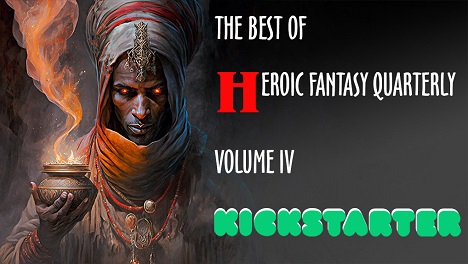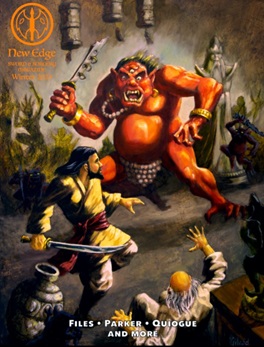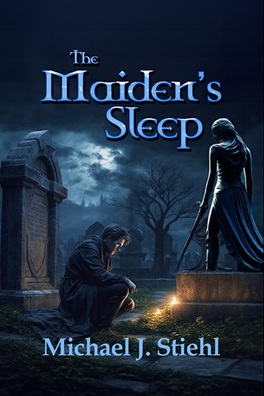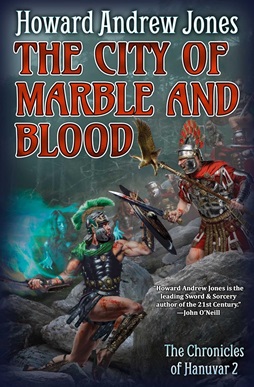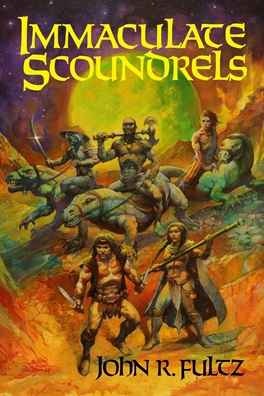A GAME OF CHESS
A GAME OF CHESS, by David Pilling:
On the morning of one inauspicious day in early spring, with the sky as grey as the towers of Camelot and the incessant rain trickling into our chain mail, we rode out. One hundred and forty-nine brave young knights, eager to win glory and honour, and one miserable cynic lagging in the rear.
We rode to Canterbury, and there bent the knee before St Thomas the Martyr. Then we separated into small groups and scattered in all directions, though some of the bravest and stupidest decided to ride out on their own. Remarkably few of these survived. Those that did, such as Uwaine and Carados, were changed men when they came back to Camelot: savage killers, with all the youth and innocence beaten out of them.
Meanwhile, I, Sir Kay, was condemned to the company of Sir Gawaine.
* * *
Easily panicked, easily frustrated, easily enraged, with the blood of ancient Celts sizzling in his veins like cooking fat, Gawaine was the last man I would have chosen to accompany me to the privy, never mind a Quest. He was the son of the King of Orkney and the witch Morgause, which made him mad, brave and touched by the magic of the Old Ones.
We headed north from Canterbury, for Gawaine was eager to plunge into the unknown and opined that the best adventures were to be found in the North Country. I went along with it, swept along like a twig in the stream by his fierce charisma.
People forget that England was a different country then. Decades of Arthur’s Peace, during which the land was steadily tamed and civilised, have stifled the memory of what a wild place it was in the old days. Much of the country was covered in forest, deep tangled labyrinthine forest, soaked in magic and half-submerged in the netherworlds of Faerie and the old pagan gods. Cities like Camelot were an oasis of law and sanity in a sea of chaos, but they were few and far between.
Into this strange, seething wilderness Arthur sent his knights, to bring peace and justice, by brute force if necessary, and to bring the light of Christ into dark places. That was the idea behind his Quests, and many brave young men died for it.
So Gawaine and I plunged into the unknown, leaving the rough roads far behind us in our — or rather, his — eagerness for encounters with black knights, malignant fairies, cockatrices, griffons and whatever else pricked his barbaric imagination.
Before long the forest ceased to be a simple collection of trees and undergrowth, and acquired an atmosphere of magic. The trees became strangely twisted and overgrown, their spindly branches overhanging like a witch’s fingers, and strange horrors lurked in the shadows.
One morning, a strange portentous morning, the air heavy with magic and a fine golden mist, we stumbled upon adventure. A glade opened before us in the forest, and in the middle of it was a high tower surrounded by a moat.
From the branches of the trees that lined the glade hung dozens of shields, some ancient and half-rotted away or pitted with rust, as if they had been there for years.
A knight came out of the doorway of the tower, a big man armed from head to foot in black armour. His visor was down, and he carried a mace in one hand and a round sable shield with no device in the other. He crossed over the bridge and took up position at the far end, raising his mace in what I assumed to be a challenge.
“A black knight,” I sighed, rolling my eyes, “how original. No doubt he means to fight anyone who wishes to pass this way. The shields hanging from the trees probably belonged to all the knights he has defeated. Perhaps he ate the bodies.”
I spoke with heavy sarcasm, but Gawaine was too excited to notice. “Do you think so?” he roared, fumbling as he snatched up his helm, “look at him, the bonny warrior! Kay, man, help me lace my helmet, my fingers are shaking.”
“Gawaine, life is not so simple,” I warned. “There is bound to be some twist here. Knights don’t just stand on bridges in the middle of the forest and kill people for no reason. Remember, we are in the heart of Faerie.”
He was in no mood to listen. That was Sir Gawaine all over, a thick-headed fool and mad for fighting, but a hard man to dislike. I reluctantly helped him arm and then rode beside him into the glade.
I only half-listened to the formal challenges — it was the usual stuff, full of thees and thous and contrived outrage — but one thing the strange knight said did stand out. When asked by Gawaine to state his name, he spoke thus:
“I am the Guardian of the Dolorous Tower. I am fated to challenge any knight that passes this way, until one should arrive to supplant me.”
He spoke in a mournful voice, more like a man attending a funeral than about to engage in deadly combat. I studied him further, and noticed an oddly listless air about him, as opposed to Gawaine’s bristling aggression.
Despite my qualms I did nothing to interrupt, and within moments the two were hacking away at each other. As ever, Gawaine fought like a mad farmer attempting to get the harvest in before rain, mowing and slashing with his sword.
It was midmorning, which was significant, for Gawaine’s blood was tainted by the magic of the Old Ones and his strength waxed as the sun rose in the sky. His opponent had a hard time of it, and could do little to counter the hammer blows that rained down on him.
Soon the grass on which they fought was speckled with the black knight’s blood, and his breath could be heard wheezing inside his helm.
At last Gawaine’s sword stabbed through the bars of his opponent’s visor, and a torrent of blood and brain matter gushed over the blade. The black knight toppled onto his face with a dying groan and a clatter of ironmongery.
Feeling numb and weary, as though I had been the one fighting, I slowly climbed off my horse and walked over to inspect the body. I heaved him onto his back and lifted his visor, wincing at the carnage inside, while Gawaine got onto one knee and gave joyful thanks to God.
From what I could make out under the gore, the man had been youngish, with a matted red beard, aquiline nose and high cheekbones. It was a noble face, and I could not help but wonder what family he had belonged to.
“Oh, shut up, Gawaine,” I snapped, irritated by his droning prayers, and at the hypocrisy that formed them. As if Christ would have anything to do with his wanton butchery.
I closed the dead man’s visor, made the sign of the Cross over him, and stood up. As I did so I happened to glance up at the tower, and saw a woman staring at me from a window.
She had a wicked face, sly and deceitful, with a cynical twist to the mouth and black cat-like eyes that glittered with bad intentions. She was beautiful enough, in a pale underfed sort of way, but her charms were drowned by the awful malignancy of her expression.
I knew her at once for what she was, and that we had to get out of the glade. “Gawaine, come,” I said urgently, for he had still not left off his prayers. “Quickly, get off your knees and on your horse! We are in deadly danger!”
He broke off, annoyance and confusion mingling on his simple freckled face. “Danger, what danger?” he demanded. “There’s nothing to fear from yon knight. I slew him a moment ago, in case you hadn’t noticed.”
“Not him, you bloody fool!” I stabbed my finger at the lady in the window, “look there!”
He twisted his head and stared up at her. Then, to my horror, he broke into a leering grin and ran an armoured hand through his sweat-soaked hair. “Well, Kay, my luck is changing,” he laughed, rising, “first I have a braw fight, and then a fine lady for dessert. Look at her smiling at us, the bonny lass. Call her down and we’ll have a party.”
“Are you mad?” I almost screamed. “Don’t you know anything, you who has magic running in your veins? She’s one of the the Fair Folk, or the Lords and Ladies, call them what you will, and this whole wood is cursed. That poor devil you just slaughtered must have been under her spell. No wonder he didn’t put up much of a fight. He must have longed for death!”
Gawaine wasn’t much shaken by this. He was too damned stupid to be scared of anything. “Och, fairies,” he said dismissively, “we have them in Orkney. Ugly wee things that live in barrows and steal milk. My auntie went off dancing in the woods with them, once, and we never saw her again. But by and large they are not to be feared.”
“This is no common country sprite,” I began, trying to keep my voice calm, but the fairy in the tower had heard enough. She waved her hand, pale as the moon and encrusted with jewels, and my tongue instantly stuck to the roof of my mouth.
“Enough of your chatter, ape,” she said in a voice that was low, pleasant and melodious, “you bore me, and must go away immediately. Your companion, of course, will stay here with me.”
Gawaine looked flummoxed at that, and turned to me for an explanation. I, unable to speak, gestured helplessly.
“What means this?” he growled, and the angry crimson flush started to creep back up his neck, “I’ll go or stay as I see fit, madam.”
The fairy laughed, a soft silvery noise, and leaned further out of the window. “Foolish man-thing,” she sneered, “have you not guessed the riddle of my tower? It must be guarded by a champion, who challenges and slays any knight that passes by until he himself is slain. His killer then takes his place. That is the game I have devised, and it has kept me amused for three hundred years.”
It took a moment for her words to sink in — Gawaine was never quick on the uptake — and then he exploded with rage.
“Trapped? Nay, never!” he roared between oaths, “no-one treats the Knight of Orkney so, man, woman or fairy!”
She merely rested her lovely head on the palm of her hand and smirked at him.
“Gawaine,” I said, having been allowed to recover the power of speech, “you cannot leave the glade. This is old magic. I am so sorry, old fellow, but you must abide here for a while. I’ll go fetch a priest and bring him back here to lift the curse.”
He would have none of it, and advanced towards the tower, his face black with anger. Trying to restrain him would have meant my death, so I stood back, aghast, as he went to slay the fairy as he had slain her champion.
Realising his intention, she tried all sorts of tricks to defend herself. The bridge over the moat turned into a wild, hissing serpent, but Gawaine trod on its spine and chopped it in half. The door to the tower turned into a blank wall of stone, but he struck it down with one shuddering blow of his fist. His blood was up, and the sun was at its zenith, meaning his strength was at its highest ebb.
I waited, trembling, as Gawaine disappeared inside the tower. All was silence for a few moments, and then a terrible high-pitched scream erupted from inside the tower and echoed through the surrounding woods.
Gawaine reappeared. His sword was spattered with fresh blood, and in his left hand he carried the fairy’s severed head by her long raven-black hair. Her dead face had a surprised expression, as well it might, and her eyelids still fluttered, a most horrible sight.
“Oh my God,” I said, backing away and crossing myself, “what have you done? You have slain a woman!”
“Tut, man,” Gawaine said cheerfully, all his high choler evaporated, “she was but a worthless fairy.”
“She was still a woman, fairy or no, and you have compromised your knighthood. Arthur will be furious when he finds out. I know him, Gawaine. He will strip you of your spurs and have you flogged out of Camelot!”
“Nonsense! This was no noble lady I slew, but a wicked sprite. Arthur will not punish me.”
As he spoke the earth began to tremble. Cracks appeared in the soil and green shoots shot up out of the ground at terrifying speed, twisting into thick ropes that coiled about Gawaine’s body, pinning his arms to his side and wrapping tight around his neck and legs.
Green leaves burst through the surface of his skin, sprouting and multiplying to cover his eyes and fill his mouth even as he screamed.
I drew my sword and sprang to his aid, attempting to hack through the web of foliage. A thick tendril snaked out, wrapped several times about my blade and plucked it from my grasp. With a despairing cry I tried to snatch it back, but a couple of stout branches whipped against my chest and dumped me on my backside.
The swirling and rustling stopped, and it was done. Sir Gawaine was entombed inside a miniature forest that had suddenly appeared out of the ground. Barely a minute had passed since the first shoots appeared.
Once again, I had cause to thank my childhood acquaintance with Merlin. He had taught me many things about the Fair Folk, including their love of games.
“Everything is a game to them,” he told me. “Life itself is a game to them. They cannot help themselves. Above all, they love challenges and riddles.”
“All right,” I said, clambering to my feet, “I accept. I will play the game.”
There was a moment of dislocation, as though the world held its breath for a second. I looked to my left and saw that a path had opened in the forest.
The path was long and winding, made of spotless white flagstones, and led to a distant hill. High on the hill stood a fine stone house, though from another angle it looked like an ugly heap of rocks, like one of those ancient hilltop cairns the Old Ones buried their dead under.
I solved the problem by clapping a hand over my left eye, and the flickering images resolved into the house. Keeping my left eye covered, I left the clearing and stepped onto the path. My horse and Gawaine’s, being sensible beasts, refused to go anywhere near, so I was obliged to walk.
In no time at all, though the house seemed at least a couple of miles away, I found myself standing at the foot of the hill. An elegant white marble staircase led up to the door, a handsome affair of yellow oak decorated with carvings of oak leaves and smirking cherubs. I mounted the stairs and knocked politely on the door, which opened silently.
Inside was a large airy round chamber with whitewashed walls and a domed ceiling. A small fire crackled in the grate and there was no furnishing, lending it a bare, cold atmosphere. In the middle of the chamber a man sat at a small table reading some ancient grimoire, carefully licking his fingers before turning the pages.
The man paid me no heed at all, so I had leisure to study him. He was of average height, slender and with hair the colour of spun gold falling to his shoulders. His eyes were remarkable, like a pair of green sapphires, and he was dressed all in black.
At last the man seemed to notice me and closed his book with a yawn. “Here you are, then,” he said in a bored voice, “and I suppose you must be made welcome. Take a seat, Sir Kay.”
He made a gesture, and a chair appeared on the opposite side of the table. Trying not to shiver, for I knew myself in the presence of a very powerful fairy indeed, I bowed and sat down.
“Now,” he said, “there is this business of your comrade, Sir Gawaine, to be settled. I don’t begrudge him killing the lady of the tower, for she was an enemy of mine and an irritating creature, but I can’t allow humans to get into the habit of murdering my folk. After all, where would it end? I’m afraid he really must be punished.”
I cleared my throat. “If it pleases you, sir,” I said nervously, “may I ask your name?”
He looked at me in surprise. “I should have thought that was obvious. My name is Oberon.”
Oberon, the King of the Fair Folk. I swallowed and tried to keep my voice calm. “I am happy to meet Your Majesty. On the matter of Sir Gawaine, I wonder if there might be some way I could persuade you to be merciful? I am happy to undergo any test or challenge on his behalf.”
He studied me, and a slow smile crawled across his face. “Sir Kay, do not be rash,” he said, chuckling, “you may be among the most loyal of your King’s knights, but you are hardly the strongest. Even the great Lancelot would struggle against some of my champions.”
“Nevertheless, I cannot abandon Gawaine.”
“I only mean to keep him imprisoned for a couple of centuries, just long enough to teach him a lesson . . . no? Oh, very well.”
He thought for a moment, tapping the side of his cheek with one long finger. Then he waved his hands over the table. A chessboard appeared, the like of which I had never seen, carved out of a single piece of ivory with the pieces wrought in precious stone.
“A game of chess to decide his fate,” said Oberon, and now his thin face had adopted the sly look that all fairies wore when they thought they were being cunning.
Merlin’s voice echoed down the years in my mind. “Remember, for such a powerful and clever race, the Fair Folk are strangely incapable of subtlety. They suffer from the sin of pride, and see no value in hiding their feelings.”
I studied the board. Oberon had chosen black, and all his pieces were carved of shining ebony. The knights and pawns were sleek sinister shapes with horned helms and closed visors, and their king an intimidating figure in flowing robes and an oversized seven-pointed crown.
My pieces were made of opalescent pieces of crystal. I picked up one of the knights, and almost dropped it in surprise. The piece was bareheaded and its face was a perfect miniature replica of Sir Lancelot’s. I picked up the other knight, and this time the face resembled Sir Tristram.
Fearing the worst, and with Oberon grinning at me, I inspected the White King and Queen. As I suspected, the King had the dragon of Cadwalader emblazoned on his chest, and their faces were perfect replicas of Arthur and Guinevere’s.
“You see, Sir Kay, we play for more than just Gawaine,” chuckled Oberon, rubbing his hands in glee, “we play for the fate of an entire kingdom. The rules are thus: every time you take one of my pieces, one of my followers dies. If you should take a rook, one of my castles shall fall into ruin. If I should take any of yours . . . well, I’m sure you can work it out.”
So this was the game, and the stakes were higher than I could have imagined. My only hope, England’s only hope, was to win the game, but that seemed unlikely. I was a competent chess player from long winter evenings playing against Merlin, but had no doubt that Oberon would be a master.
His grin threatened to split his face in half. “Come, mortal,” he said eagerly, “let us play.”
I did my best, and in a few minutes had taken one of his pawns. The moment I took the piece off the board I thought I heard a distant scream, far away in the depths of the castle, and Oberon’s brow furrowed.
A couple of moves followed, and I had another of his pawns. There was another scream, this time a lot closer, and the sound of a body falling to the ground. Oberon was positively frowning by now.
I noticed that he had only moved his pawns so far. Realising this, he picked up one of his knights, hesitated, and then held the piece up to the light.
“How does this one move?” he asked, looking puzzled, “it does a sort of hop, skip and jump to the right, is that correct?”
For a moment I just gaped at him, and then relief flooded through me. Oberon had barely any clue how to play chess!
Again, I heard Merlin’s voice. “Fairies are capricious, lazy creatures. Born with gifts and talents beyond any human, they make little effort to learn anything new, and cannot abide the discipline required for real work and concentration.”
Now it was my turn to grin. Within a score of moves I had committed a mass slaughter of his pawns — accompanied by a whole host of screams — and killed a bishop.
“Be still,” commanded Oberon as my fingers reached for the knight I intended to slay his rook. They froze in mid-air, and my entire body went as rigid as a statue. I could neither move nor speak.
I thought Oberon meant to kill me, but instead a book appeared on the table next to the board. It was a dusty, leather-bound tome, red plush flaking from its spine, and on the cover it bore the title ‘THE ART OF CHESS’ in faded gold lettering.
Oberon licked his index finger and began leafing through the yellowed, crackling pages, frowning irritably as he turned the pages faster, too fast for any human eye to absorb the tiny, cramped handwriting and complex diagrams of chess boards and tactics.
“How very tedious,” he said at last, snapping his fingers. The book disappeared, and at the same time I regained the use of my body.
“You can make your move now,” Oberon smirked, “I have digested the art of this game from the masters, and am now an expert.”
Well, he wasn’t that, but his game had certainly improved. Within a few minutes three of my pawns had joined the casualty list, though thankfully without any accompanying screams.
“Don’t fret,” said Oberon as he plucked the third pawn from the board, “no humans will die for rubbish such as this. I’m not interested in the fate of pawns.”
He gave me a knowing look, and an icy stab of fear passed under my ribs. “What of my other pieces?” I asked, trying in vain to read any sign of intent or feeling in those green fairy eyes. I may as well have looked for compassion in a cat.
“Play on, Sir Kay,” he replied, and so we did.
Half an hour later, and I was still the better player, but had to work for my advantage. All his remaining pieces had been pushed back into a defensive pattern in a corner of the board, and I had my eyes on snatching his Queen. I hunted her across the board, but she kept evading me, until at last I had her trapped. She had taken cover behind a wall of pawns, and to get to her would mean sacrificing a knight.
I hesitated, and Oberon’s eyes bored into me. “Your move, Sir Kay,” he said, wearing his most insufferably complacent expression, “how close you are to victory, and rescuing your friend. A hundred years in a fairy prison is not a pleasant experience. Take it from one who knows. When I was a mere Duke, some of my enemies locked me away in the Dolorous Tower for three centuries. Three centuries in a nasty, damp little room with no door or windows. It’s a wonder I’m sane.”
He was testing my will, I knew that, and for the first time I detected a hint of nervousness in my opponent. His Queen on the board could only represent Oberon’s wife Titania. If the stories are to be believed, she was a hot-tempered creature, and unlikely to take kindly to her husband bartering with her life in a game of chess.
Victory was within my grasp, for without his Queen all he had left was a rabble of pawns, a single miserly Bishop, and his King. But to sacrifice my knight meant sacrificing the life of a human knight.
“It has to be someone you know,” he said, watching me with avid fascination, “you have to choose from the faces in your memory.”
The pleasure in his tone disgusted me. “For Christ’s sake,” I exclaimed, looking away from the board, but Christ could not help me here. We were in a place apart from Heaven and Hell, the Otherworld, a land that abided by its own rules.
However, if I had to go through with this obscene ritual in order to free Gawaine, then so be it. I chewed my lip, trying to think of a suitable sacrifice, a death that would make the world a better place. The face of Arthur’s bastard son Sir Mordred flashed before me — Mordred, that twisted, scheming, coddled streak of villainy, forever conspiring to overthrow his father and take the crown for himself. His death would remove a grave threat to the realm, and disperse the dark clouds slowly gathering over Camelot.
His name caught in my throat. I couldn’t do it. Vile as Mordred was, he was also Arthur’s heir, his only living son, and in his generous folly Arthur thought he loved him. Mordred’s death would break his heart, and I would rather have sacrificed myself than cause my foster-brother pain.
Oberon cackled, and tapped his finger-tips together in mockery of applause. “Human mercy!” he jeered, “what an impractical, useless concept! So you would spare Mordred, eh? I am glad of it. That young man is very much like a fairy in character, and I predict great things for him.”
I ignored him, rifling through a mental list of the worst, the most expendable men of my acquaintance (I never considered sacrificing a woman: I am a knight, after all). At last, one man’s name sprang ahead of the rest.
“Sir Bruce Sans Pité,” I said. Oberon looked at me with dismay.
“Are you certain?” he asked, and now there was a definite wheedling, pleading tone to his voice.
“Yes,” I replied confidently, “Sir Bruce is one of the worst knights in the realm, and takes delight in murdering innocents. He breeds especially fast horses, so whenever a true knight comes along to avenge his crimes he always escapes. You may kill him, and hear no objection from me.”
“Wait, wait!” cried Oberon in panic-stricken tones as my fingers closed around the head of the knight I intended to sacrifice. “Desist, I beg you!”
“Is something the matter, Your Majesty?” I asked blandly, “the game must be played out. Those are the rules, are they not?”
He looked at me with loathing and, I flatter myself, a touch of admiration. “You are a nasty, vicious creature,” he said, “and should have been born a fairy. You really must go away now. Begone!”
He suddenly stood, sweeping his hand across the table and sending the pieces tumbling across the floor. His face twisted in wrath and a spectral seven-pointed crown appeared on his brow. This was the true Oberon, King of the Underworld, and for a moment I thought he meant to destroy me.
King, castle, chessboard and all vanished in the blink of an eye, and I found myself standing in the forest glade. The tower was still there, though now it was a darkened, crumbling ruin, its walls covered in moss and creeping ivy.
There was no sign of the corpse of the knight that Gawaine had killed, and the shields hanging from the trees had vanished. Gawaine himself was lying stretched out on the grass, covered from head to foot in decaying autumn leaves and bits of twig.
I pondered on the most effective way of waking him, and settled for a swift boot to the ribs. “Get up,” I barked, “I’ve risked enough for you today, and I’ll not risk dying of old age waiting for you to finish your nap.”
His eyes fluttered open and fastened on me. “Kay, man,” he whispered, coughing through a mouthful of leaves, “what happened? I had this terrible dream.”
For a moment I thought about describing recent events, but gave him another kick instead.
“I’ll tell you on the way back to Camelot,” I growled, turning away, “where I intend to stay until the roof falls in. Sir Kay is done with Questing!”
___________________________________________________________________________________________
David Pilling is 33 years old and currently works as a freelance writer and self-employed Archival researcher. Previous jobs included stints at Tate Britain, The Royal Opera House and The School of Oriental and African Studies.
He has been writing fiction and non-fiction on a freelance basis for the past three years, and many of his non-fictional articles have appeared in various regional and national UK publications.
His fiction is inspired by his love of historical and science fiction and authors such as George McDonald Fraser, George R.R.Martin and Bernard Cornwell.
